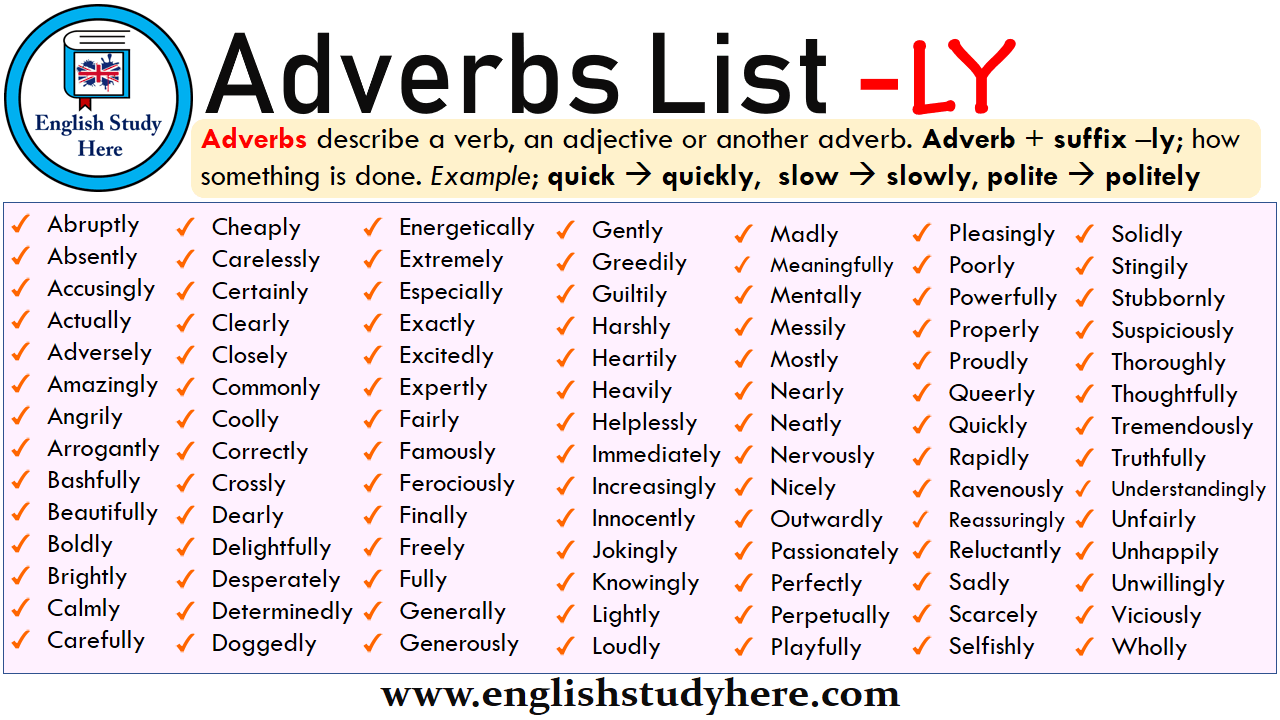Here are some important tips to help you understand adverbial clauses: Adverbial clauses always start with a subordinating conjunction. According to haegeman, instances of long adverb fronting appear to behave like fronted arguments, adhering to the three distinctions not typically expected of adjuncts such as. Last night we went dancing.: There is also an interactive exercise.

Return to the table of contents.
11.10.2021 · the adverbial clause in the sentence above explains why the speaker has chosen to adopt a dog. Too, καὶ (kai) conjunction strong's 2532: An independent possessive pronoun will normally come at the end of the sentence or clause. Or (referring to what precedes or follows). Thus, so, in this manner. To 'grave', especially to write; Short adverb fronting is fronting of an adjunct such as an adverb within one clause, while long adverb fronting involves movement of an adjunct from a position in the embedded clause to a position in the root clause. An adverbial clause includes a subject and a verb, while an adverbial phrase does not. Here are some important tips to help you understand adverbial clauses: Thus, so, in this manner. Usually, normally, often, frequently, sometimes and occasionally. It's important to remember that these connecting adverbs take adverb placement at the beginning of a phrase in order to connect it to the phrase that has come before. Commas are often used after the use of a connecting adverb.
There are a number of these … Here are some important tips to help you understand adverbial clauses: An adverbial clause includes a subject and a verb, while an adverbial phrase does not. To 'grave', especially to write; Thus, so, in this manner.

Or (referring to what precedes or follows).
According to haegeman, instances of long adverb fronting appear to behave like fronted arguments, adhering to the three distinctions not typically expected of adjuncts such as. There are a number of these … Or (referring to what precedes or follows). 11.02.2019 · initial position adverb placement is used when using a connecting adverb to join a statement to the preceding clause or sentence. Usually, normally, often, frequently, sometimes and occasionally. Check out our free grammar review library. An adverbial clause includes a subject and a verb, while an adverbial phrase does not. Return to the table of contents. Short adverb fronting is fronting of an adjunct such as an adverb within one clause, while long adverb fronting involves movement of an adjunct from a position in the embedded clause to a position in the root clause. It's important to remember that these connecting adverbs take adverb placement at the beginning of a phrase in order to connect it to the phrase that has come before. 11.10.2021 · the adverbial clause in the sentence above explains why the speaker has chosen to adopt a dog. Last night we went dancing.: This page has lots of examples of adverbial phrases and clauses and explains how they are used with commas.
Return to the table of contents. Commas are often used after the use of a connecting adverb. 3 tips for understanding adverbial clauses. Check out our free grammar review library. Last night we went dancing.:

Commas are often used after the use of a connecting adverb.
Usually, normally, often, frequently, sometimes and occasionally. Thus, so, in this manner. Return to the table of contents. Or (referring to what precedes or follows). Thus, so, in this manner. Short adverb fronting is fronting of an adjunct such as an adverb within one clause, while long adverb fronting involves movement of an adjunct from a position in the embedded clause to a position in the root clause. Check out our free grammar review library. To 'grave', especially to write; Here are some important tips to help you understand adverbial clauses: According to haegeman, instances of long adverb fronting appear to behave like fronted arguments, adhering to the three distinctions not typically expected of adjuncts such as. Commas are often used after the use of a connecting adverb. An adverbial clause includes a subject and a verb, while an adverbial phrase does not. An independent possessive pronoun will normally come at the end of the sentence or clause.
Adverb Clause Of Manner : Pin on English grammar; Learn English; How to Make : Or (referring to what precedes or follows).. An adverbial clause includes a subject and a verb, while an adverbial phrase does not. Adverbial clauses always start with a subordinating conjunction. Check out our free grammar review library. Usually, normally, often, frequently, sometimes and occasionally. Always, ever, rarely, seldom and never* usually we see him at church.